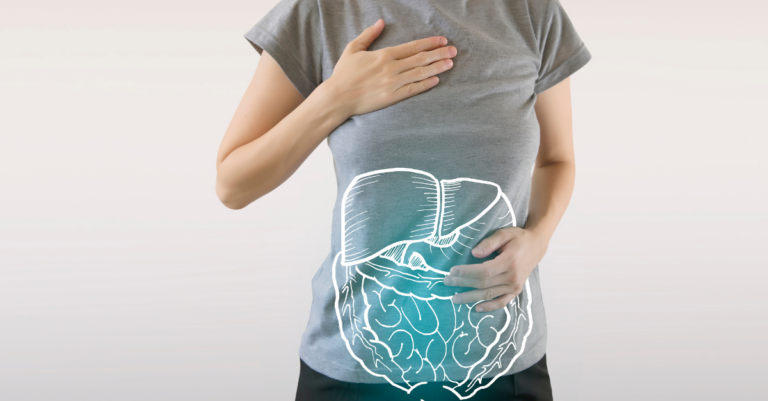You are conscious about what you eat and do your best to eat well, but you still don’t feel your best. You feel gassy and bloated, you’re getting acne, your skin isn’t glowing anymore, you may be ready for a nap after a meal and you wish you can get rid of your brain fog.
These issues frustrating and sometimes embarrassing. They’re also very common. Many patients come to see us with healthy lifestyles, but are still experiencing ongoing fatigue, digestive symptoms and skin issues. If this sounds familiar, it may be time to take a good look at your diet. Even a “healthy” food can make you sick if your body is sensitive to it. For many, the food mystery becomes both frustrating and overwhelming when trying to understand what foods are nourishing you and not making you feel terrible.
The good news is that you may not have to look very far to make changes that relieve your symptoms. With a bit of detective work, and a bit of help, you can map out a dietary plan that helps you feel your best.
Food Sensitivity symptoms
Food sensitivity can be tricky to diagnose. One reason is that there’s no one-size-fits-all description of the way our bodies react. Symptoms vary from person to person and can even be different depending on what else is happening in your body. For example, you might respond differently at different stages of your menstrual cycle.
Food sensitivities can cause:
- Gas and bloating
- Abdominal pain
- Constipation and/or Diarrhea
- Asthma
- Ear infections and sinus infections
- Eczema and psoriasis
- Autoimmune diseases
- Headaches & migraines
- Dark circles under your eyes
- Brain fog – that annoying forgetfulness and lack of clarity
- Sore joints
- Chronic illness
- And many other conditions!
Another reason why a food sensitivity is often a missed diagnosis is that these symptoms can be delayed 24-72 hours after a meal, so many people don’t make the connection between what they ate and how they feel.
Similarly, it’s difficult to measure how many people suffer from food sensitivities because a lot of us don’t seek medical help, figuring that it’s “normal” or it’s “just part of aging” to feel tired and bloated all of the time. In fact, conventional medical practitioners can be skeptical about food sensitivity symptoms, which can lead to frustration for patients. But it doesn’t have to be this way.
Causes of Food Sensitivities
Understanding the difference between food allergies, food intolerances, and food sensitivities is important:
- Food allergies are immune reactions. After eating a certain food, your body’s immune system launches an attack by making its own protein, called immunoglobulin E (IgE). The next time you consume that food, your body is ready to attack again. The IgE causes your body to release a chemical called histamine, which triggers the physical symptoms of an allergic reaction. This is the type of allergy reaction one has to pollens and dander. With food, it can cause frightening anaphylaxis reactions.
- A food intolerance occurs when the body loses the ability to produce a certain digestive enzyme. Lactose intolerance occurs when the body cannot produce the lactase enzyme, and fructose intolerance occurs when a body cannot produce the fructase enzyme. Eating foods with lactose or fructose will then cause gas/bloating and diarrhea to occur.
- A food sensitivity reaction occurs when you eat a food and it forms an antigen/antibody reaction. That is, a different part of your immune system binds to the food, the IgG reaction. Those immune complexes can cause intestinal and systemic problems in the body and mind. There are specialty labs that can detect this reaction. Dr. Morstein uses Alletess Labs and one blood draw can uncover up to 184 food sensitivity reactions.
If we continue to eat that food sensitivity, the lining of the gut can become inflamed and damaged. Eventually, it can become permeable, so the undigested material “leaks” into the bloodstream. Not surprisingly, this is called “leaky gut” syndrome.
What is the root cause of food sensitivities?
There are many medical reasons contributing to why they are becoming increasingly common:
- Eating the same food over and over: the gut is healthiest when a variety of foods are eaten regularly. Simply eating cheese, wheat and eggs all the time increases the risk that you might develop a sensitivity to one of them.
- Poor diet: A diet high in processed foods, sugar, chemicals, GMO’s (genetically modified organisms), excess alcohol or coffee—all these things can over time increase the inflammation of the gut lining and the risk of developing a food sensitivity.
- Lack of protective nutrients: Ingesting foods high in antioxidants and anti-inflammatory chemicals help protect all cells in your body, including your intestinal lining.
- Long term use of antibiotics and other drugs that harm the gut: many medications can harm the gut, the ability to digest, and the beneficial bacteria (probiotics) in our intestines. Proton Pump Inhibitors and common anti-inflammatories, such as ibuprofen and naproxen can be damaging to the gut when used for long periods of time.
- Eating too fast, eating too much: Poor eating habits can stress the gastrointestinal tract.
- Dysbiosis: When you have low beneficial bacteria or an overgrowth of problematic fungal or bacteria species, this can cause leaky gut and food sensitivities.
Which Foods Can Cause Food Sensitivities?
Uncovering food sensitivities is a fantastic reason why seeing a Naturopathic Doctor is a good idea if you suspect your food may be making you sick. In addition, medical supervision can ensure your approach to food remains healthy and balanced. Research suggests that food sensitivities can be a trigger for disordered eating in some people. After all, if food is causing you pain, but you’re not sure which foods are to blame, it’s easy to associate your diet with negative experiences.
Treating Food Sensitivities
Food sensitivities are easily identified and treated by the doctors at our centre using these methods:
- Test through a reputable laboratory to uncover food sensitivity reactions
- Remove all positive foods and tidy up your diet in a healthier way
- Heal the gut lining using supplements specific to what your body needs
- Our patients will return after one month to check in with their Naturopathic Doctor — they usually have to avoid all the foods on the list for only 1-2 months. Once symptoms/signs of the chief complaint(s) are gone, then foods will be methodically added back in one by one to uncover which one(s) really cause the problem, and must continue to be avoided, and all the others are good to be eaten regularly again
Uncovering food sensitivities is a truly valuable medical journey for many patients.
If you feel like you’re having trouble pinpointing the issue, please do not hesitate to contact us at (519) 954-7950 or info@HealthSourceIMC.com and we will work to identify your food sensitivities together.
The Team at HealthSource Integrative Medical Centre
References
https://www.ncbi.nlm.nih.gov/pubmed/28936357
https://www.ncbi.nlm.nih.gov/pmc/articles/PMC5603184/
https://www.sciencedirect.com/science/article/abs/pii/S0277953608002773
https://www.ncbi.nlm.nih.gov/pubmed/7460264
https://www.nature.com/articles/s41575-018-0064-z
https://www.sciencedirect.com/science/article/pii/S0306453018303950
A gut (microbiome) feeling about the brain
Food Problems: Is it an Allergy or Intolerance


